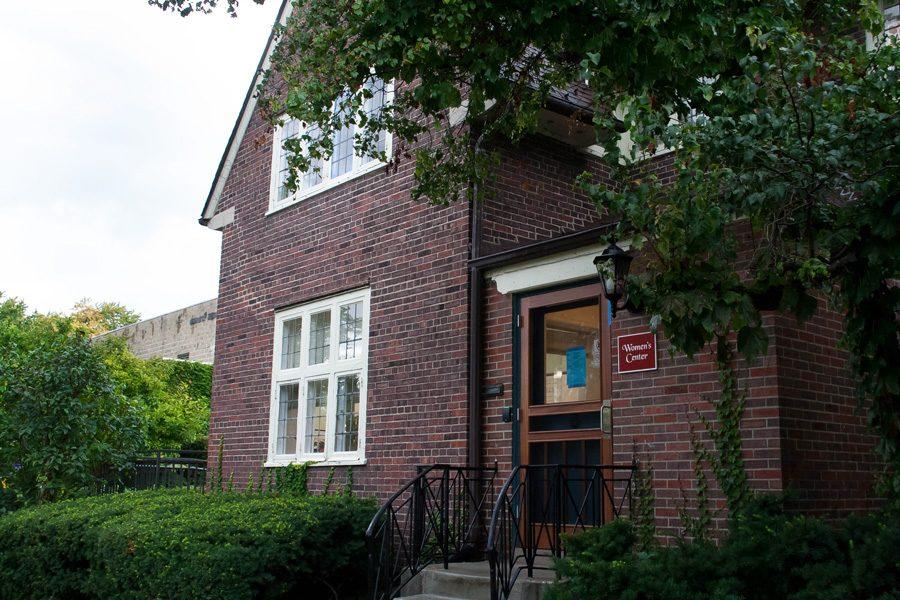Provost responds after student criticism of Women’s Center changes
Katie Pach/The Daily Northwestern
The Women’s Center, 2000 Sheridan Rd., will be integrating counseling services with CAPS. Provost Dan Linzer said this change will streamline and improve health resources available to students.
October 14, 2016
Provost Dan Linzer defended recently-announced plans for Counseling and Psychological Services to absorb the Women’s Center’s counseling services, saying it makes more sense for the University to offer its mental health programs in one place.
Linzer said the Office of the Provost, which oversees the Women’s Center, does not have the “expertise” to oversee a health care practice.
“CAPS identifies what’s the best approach for students who need certain types of help,” Linzer said. “We’re putting all this investment into making CAPS absolutely terrific. Wouldn’t it make sense to combine the resources and really have a single umbrella over our student mental health programs that provide the best possible coverage we can?”
Some students had criticized the decision, concerned in part that CAPS — which specializes in short-term, rather than long-term, counseling — wouldn’t serve students as well as the Women’s Center does now.
Linzer pointed out that CAPS already provides long-term counseling to students when they need it, and that CAPS recently lifted its 12-session limit for students.
Linzer said the Women’s Center provides such a wide range of services that it was important to designate services it should continue and which ones could be “met in other ways that can be better for the University.”
Linzer also said the decision was made after a years-long planning process, in hopes that “any health care that we are providing for students meets the highest professional standards.”
The email, sent Sept. 28, said the integration will be “facilitated by the increased number of counselors at CAPS,” and “a wide array of mental health services and other support … which were not immediately available in the Women’s Center.”
Still, SESP sophomore Liz Diamond, a member of Sexual Health and Assault Peer Educators, said she was referred out of CAPS during her first intake appointment and went to the Women’s Center instead. She said she was “immediately disappointed” to hear the news because of how the Women’s Center helped her.
“I just remember feeling so drastically different (in CAPS) than in my intake appointment with the Women’s Center,” Diamond said. “CAPS is very cold and clinical, and the Women’s Center is just welcoming. It’s literally a house; it’s a home.”
CAPS staff said they were not available for comment.
The Women’s Center served roughly 80 students per year from 2013 to 2015, interim director Alecia Wartowski told The Daily in an email. Both clinicians and counseling externs meet with students.
Wartowski added that students of any gender can use the center’s services for up to 52 sessions.
“While I think it’s great that CAPS has removed the (12-session) limit, I think that wasn’t the only problem with CAPS,” Diamond said. “I understand the limitations of running a mental health service through the Office of the Provost. However, I do think there’s a compromise that could be made to maybe reduce liability … (while) keeping a warmer setting and an alternative for people who have had a bad experience with CAPS.”
Linzer said the comfort students experienced in the Women’s Center is “a good point to raise,” but said his office can still attempt to make improvements while considering these concerns.
He added that the University has made “enormous” progress in diversifying therapists at CAPS.
“They are a very diverse group who relate to students on a wide array of backgrounds, so many of the issues that have been raised have been recognized and have been addressed by enhancing CAPS,” Linzer said.
The Women’s Center is currently discussing the transition with CAPS as students continue to receive long-term counseling at the Center. The changes are planned to be implemented by Winter 2017.
Email: yvonnekim2019@u.northwestern.edu
Twitter: @yvonneekimm



